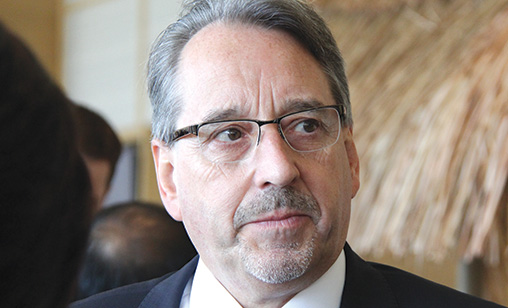News Backgrounder
Asia’s carriers take extra hit as fuel costs climb
Asia-Pacific passenger and cargo traffic has surged but so has jet fuel at the region’s carriers, especially as seasonal refinery maintenance has reduced supply.
June 1st 2018
To date this year, the average global jet fuel was US$83.40 a barrel, a sum that has added $39.3 billion to the industry’s collective operating costs. Read More » But Asia-Pacific oil is costing airlines even more than their peers elsewhere because of seasonal maintenance at regional refineries.
In its most recent fuel monitor, the International Air Transport Association (IATA) said airlines are paying $92.10 a barrel for jet fuel, hedging aside, which was a 54.2% increase over the same period last year. Jet fuel producers are reporting their best profits in years by converting Brent crude, selling at around $78 a barrel at press time, to jet fuel, it said.
 |
In May, Thomson Reuters Eikon said, Asian jet fuel buyers are paying the highest premiums for this time of year in a decade.
The major cause of Asia’s higher jet fuel prices is the region’s seasonal oil refinery maintenance schedule. Resource consultancy, Energy Aspects, said 2.46 million barrels per day (bpd) of Asian oil refining capacity had to undergo maintenance in May, which is close to total demand for crude oil in South Korea.
The refinery maintenance cycle is coinciding with double digit travel demand in countries such as China and India that continues to hit new peaks. China’s domestic air traffic climbed 15% in March from a year earlier, said IATA, the strongest growth for five months.
In India, March domestic traffic rose by 28%, which was the 43rd consecutive month of double digit growth in a nation where the government is pursuing an ambitious transport infrastructure program.
There also was strong growth across Southeast Asia. Singapore’s DBS Bank forecast air passenger expansion for the Association of Southeast Asian Nations (ASEAN), home to more than 600 million people in 10 countries, to be around 6% this year.
Asia’s jet fuel profit margin (crack) is $15.75 per barrel above benchmark Dubai crude, which also is 50% higher than a year ago. The crack peaked at $18.03 in February. Director of energy consultancy Trifecta, Sukrit Vijayakar, has predicted an average jet fuel crack of $16.50 per barrel for the year.
The global economy saw broadly based growth in advanced and emerging markets, boosting both business and leisure travel demand. Air cargo markets were lifted by accelerated global trade activity. At the same time, moderate capacity expansion lent support to airline yields, said the airline association.
Asia-Pacific airlines achieved 6.7% growth in combined operating revenue, to $176.6 billion, in 2017. Passenger revenue increased by 6%, to $135.6 billion, although intense competition led to a marginal 1.0% decline in passenger yields, to 7.9 US cents per RPK.
Cargo revenue increased by 14.6%, to $18.6 billion for the year. Following several years of contraction, freight yields rebounded by 6%, to 25 US cents per FTK.
Combined operating expenses climbed 8.7%, to $165 billion for the 12 months. Fuel costs rose by 19.6% to $40.6 billion. Global jet fuel prices increased 24.5% to an average of $65.4 per barrel. The share of fuel expenditure as a percentage of total operating expenses rose by 2.2 percentage points to 24.6%.
As usual, where the cost of jet fuel is heading is largely a matter of conjecture. As one airline president, Garuda Indonesia’s Pahala Mansury, put it: “We are on track to post a profit in 2018, but (this) will depend on the fuel price going ahead.” AAPA director general. Andrew Herdman, also was cautious.
“The region’s airlines continued to face stiff competition and increased cost pressures from markedly higher fuel prices and rising labour costs,” he said.
But Herdman remained confident the expanding global economy bodes well for Asian airlines. “Business activity is expected to remain relatively robust. Increased consumer spending should underpin growth in passenger travel and support air cargo demand in the coming months,” he said.